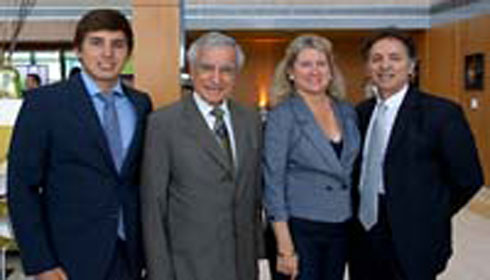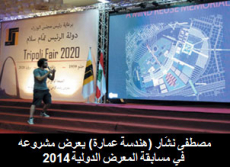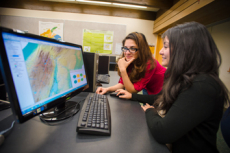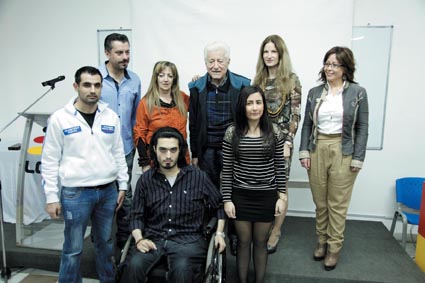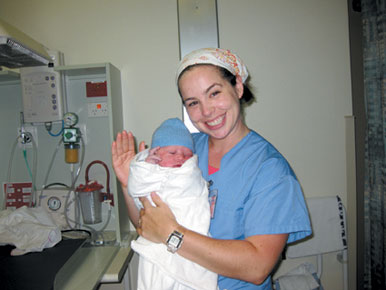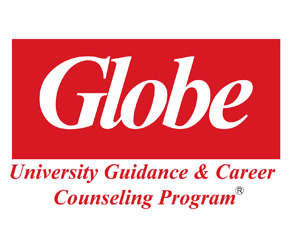LAU’s global networks
Dr. Jabbra: One of our core strengths is that we continuously strive to position LAU as a university without borders. Simply put, no institution of higher education can remain an island onto itself, and it is imperative that we strive to find ways to create synergistic partnerships with universities around the world.
Encountering diverse cultures inspires currents of creativity and innovation to flow and this is our impetus for extending our hands to practically everywhere. The underpinnings of such a philosophy began in New York and the fact that LAU is chartered there is prescient of our current operations at the New York Headquarters and Academic Center. But we do not intend to stop there. We are extending our trailblazing ethos far and wide, and cultivating a global sensibility that has little patience for restrictive notions of East or West. This is the future of education and we are determined to be competitive in this domain as we expose LAU to a world of possibilities.
How is LAU harnessing the energy and expertise of Lebanese abroad for the betterment of the institution?
Dr. Jabbra: LAU is uniquely positioned to make the most of such global networks. From my experience traveling and speaking to Lebanese abroad I have discovered that that many first, second, and even third generation emigrants have an earnest desire to rediscover their ancestral roots and become involved with the community. Their memory and vision of Lebanon is stirred by visits or news of the country; consequently when LAU offers opportunities for them to connect, they often jump at the chance to contribute meaningfully to their society, and in turn help to further the mission of the university.
Lebanese emigrants are well known for the value they bring to their host countries. Have you had the occasion to connect with Lebanese emigrants abroad in recent months?
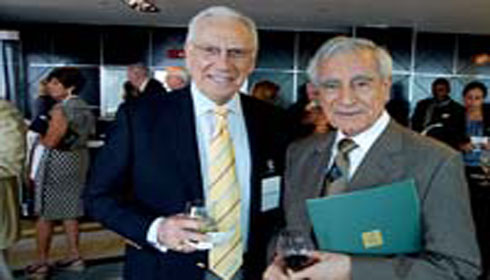
Dr. Jabbra: Yes, in fact I have recently returned from a three-and-a-half day trip to Miami where I had a very constructive meeting with Thomas Abraham, the chairman and CEO of iAM Enterprises, as well as the son of car tycoon Anthony R. Abraham. Mr. Abraham is an influential figure with a strong conviction in the mission of LAU and its importance in strengthening the fabric of Lebanese society. While I was in Miami, he organized a gala dinner and invited over thirty prominent guests, the who’s who of the community, to become acquainted with the university and its vision for the future. Among those in attendance were business, industry and academic luminaries in Miami. During this event we explored the possibility of establishing an incubator on the Byblos campus in concert with the School of Engineering so that our institution can take a leading role in two high-stake areas—energy and water. These two commodities need to be managed appropriately to safeguard the future wellbeing of the country. Spurred by Mr. Abraham’s expressed support to pursue such a project, I intend to prepare a foundational study about energy use in Lebanon; looking at questions of how energy is produced, the cost of energy and the government’s role, the amount of consumption, the number of generators we have in the country and so forth. These are all important questions to consider as we look to create innovative methods for conserving energy. Water is also a resource that suffers from mismanagement and the only way to find alternatives is to utilize technology to promote creative, out-of-the-box thinkers. It is with this in mind that we strive to continuously position LAU as a symbol of innovation and it is this very spirit that attracted Mr. Abraham to the university. In fact, his enthusiasm for these forthcoming projects was so encouraging it prompted me to suggest that he serve on LAU’s Board of Trustees. I was struck by how immediate and positive his response was; as a result, I will be putting forth his name to the nominating committee on August 30 as a candidate for election to the Board of Trustees.
In what ways were you able to draw on Mr. Abraham’s connections in Miami to further your outreach goals?
Dr. Jabbra: During the short but fruitful trip, Mr. Abraham introduced me to Dr. Donna Shalala, who served for eight years as Secretary of Health and Human Services under President Bill Clinton. Since 2001, she has served as the president of the University of Miami where she recently wrapped up an impressive fundraising campaign, raising $1.2 billion for the institution. She is proud of her Lebanese heritage and was eager to explore the possibility of a partnership between our two universities. Carving out time in her hectic schedule, Dr. Shalala exhibited a deep knowledge of LAU and expressed enthusiasm about our presence in New York. Eager to join hands, we discussed three domains that were of mutual interest: medicine, engineering, and business. Going forward, we will be holding meetings with our respective deans to seek their feedback on what the details of a mutually beneficial partnership would entail, taking into account the needs and strengths of both universities. We left the meeting optimistic about working together and eager to implement our ideas.






